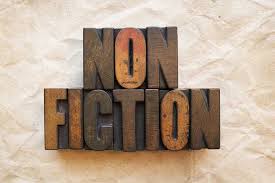The Fascinating World of Non-Fiction
Non-fiction literature offers a gateway to explore the real world, providing readers with valuable insights, knowledge, and perspectives. Unlike fiction, which is based on imagination and creativity, non-fiction presents factual information that educates, informs, and enlightens.
From biographies to self-help books, history to science, non-fiction covers a vast array of topics that cater to diverse interests and curiosity. Readers can delve into the lives of inspiring individuals, uncover historical events, or deepen their understanding of complex scientific concepts.
One of the key advantages of non-fiction is its ability to expand our horizons and broaden our understanding of the world around us. It challenges us to think critically, question assumptions, and engage with new ideas. Whether you are seeking personal growth, professional development, or simply looking to satisfy your intellectual curiosity, non-fiction has something for everyone.
Moreover, non-fiction plays a crucial role in preserving knowledge and documenting human experiences. Through memoirs, essays, and investigative journalism, authors capture important moments in history and offer valuable perspectives that shape our collective consciousness.
In today’s fast-paced world where information is readily available at our fingertips, non-fiction serves as a reliable source of credible information amidst the noise of fake news and misinformation. By engaging with well-researched non-fiction works authored by experts in their fields, readers can gain a deeper understanding of complex issues and make informed decisions.
So whether you are a history buff, a science enthusiast, or someone looking to expand your intellectual horizons, delve into the fascinating world of non-fiction literature. Explore new ideas, challenge your assumptions, and embark on a journey of lifelong learning through the pages of non-fiction books.
Understanding Non-Fiction: Key Questions and Insights
- What is non-fiction literature?
- How does non-fiction differ from fiction?
- What are the different genres of non-fiction?
- Why is non-fiction important?
- How can I distinguish credible non-fiction sources?
What is non-fiction literature?
Non-fiction literature encompasses a diverse range of written works that are based on real events, facts, and information. Unlike fiction, which is rooted in imagination and creativity, non-fiction aims to present accurate and objective accounts of the world around us. From biographies and memoirs to history books, self-help guides, and scientific journals, non-fiction literature provides readers with valuable insights, knowledge, and perspectives on a wide variety of subjects. By delving into non-fiction works, readers can expand their understanding of the world, challenge their assumptions, and engage with different ideas in a meaningful and informative way.
How does non-fiction differ from fiction?
Non-fiction and fiction are two distinct genres that serve different purposes in literature. Non-fiction is based on factual information, presenting real events, people, and concepts in a truthful and objective manner. It aims to educate, inform, or persuade readers by providing accurate and verifiable content. In contrast, fiction is a product of imagination, where authors create characters, settings, and plots that are not bound by reality. Fictional works entertain readers through storytelling and often explore themes and emotions that may not exist in the real world. The key difference lies in their foundations: non-fiction is rooted in reality, while fiction is a product of creativity and invention.
What are the different genres of non-fiction?
Non-fiction literature encompasses a diverse range of genres that cater to various interests and preferences. Some of the common genres of non-fiction include biography, memoir, history, science, self-help, travel, true crime, essay, and journalism. Each genre offers a unique perspective on real-world subjects, providing readers with opportunities to explore different facets of human experiences, knowledge, and understanding. Whether delving into the lives of remarkable individuals through biographies or gaining insights into historical events through history books, non-fiction genres offer a rich tapestry of information and storytelling that captivates and educates readers in equal measure.
Why is non-fiction important?
Non-fiction plays a vital role in our society by providing readers with factual information, valuable insights, and diverse perspectives on real-world subjects. Unlike fiction, non-fiction literature serves as a source of knowledge that educates, informs, and enlightens individuals. It helps us expand our understanding of the world, challenge our assumptions, and engage with critical issues. Non-fiction is important because it preserves knowledge, documents human experiences, and offers a reliable source of credible information in an era dominated by fake news and misinformation. By exploring non-fiction works authored by experts in various fields, readers can gain deeper insights into complex topics, broaden their intellectual horizons, and make informed decisions based on evidence and research.
How can I distinguish credible non-fiction sources?
When seeking to distinguish credible non-fiction sources, it is essential to employ critical thinking and evaluation skills. Look for authors who are experts in the subject matter, with relevant qualifications and experience. Check the publication date to ensure the information is up-to-date and relevant. Verify the sources cited within the work to assess the accuracy and reliability of the information presented. Additionally, consider the reputation of the publisher or platform where the non-fiction source is found, as reputable publishers often uphold high editorial standards. By scrutinising these key factors, readers can confidently identify credible non-fiction sources that provide accurate and trustworthy information.

